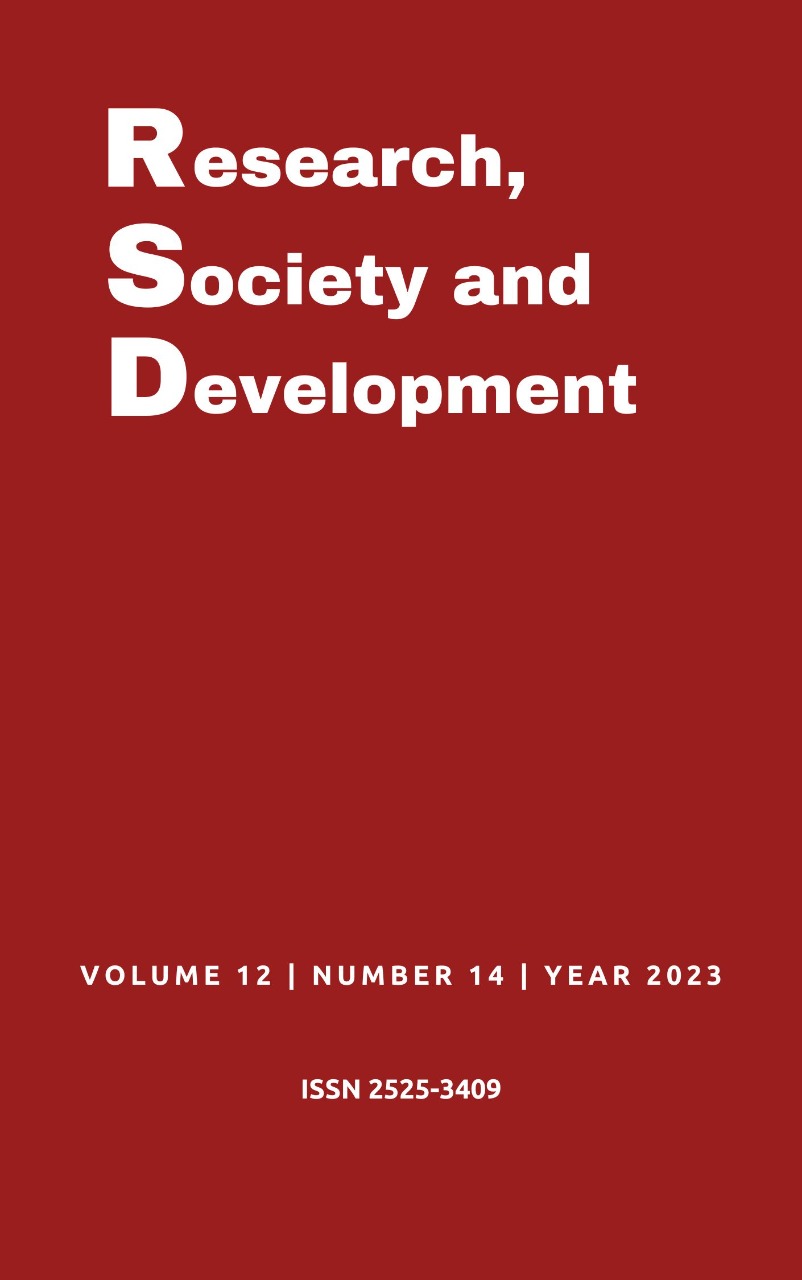Empowering women through vocational training: Evidence from rural areas affected by armed conflict in Mozambique
DOI:
https://doi.org/10.33448/rsd-v12i14.41196Keywords:
Empowering women, Gender disparity, University extension, Vocational training.Abstract
In Mozambique, despite improvements in literacy and school enrolment rates over the recent decades, the gender disparity in terms of economic opportunity has not improved significantly among the younger cohort of the population. Most of the poor people live in rural areas affected by armed conflicts, where there are higher rates of illiteracy and infant mortality, limited access to energy, safe water and sanitation. In these rural communities, where employment options in the non-agricultural sector are extremely limited, vocational training opportunities for women is essential aspects for boosting job creation and generating new employment opportunities. Institutions of higher education, through university extension, can be driving forces of sustainable local development, based on interrelationship between the University and society and exchange of systematized/academic and popular knowledge. Thus, the aim of this study is to describe challenges and opportunities in conducing intensive training for economic empowering of young underprivileged girls in areas of armed conflict in Mozambique. Methodologically, transferring of knowledge took place by combining methods of course and practical demonstration. The findings of the study suggest that the effectiveness of the university extension process cannot be achieved by following the traditional teaching method, by which knowledge transfer is hierarchical - from teacher to student, but rather, using different teaching and learning methods, according to the needs and profile of the trainees. Also, making the timing and location of classes and training convenient for all women can help to ensure high rates of take-up a more harmonized work–family balance.
References
Balardim, G. (17/01/2020). Teaching Methodology. https://www.clipescola.com: https://www.clipescola.com/metodologias-de-ensino-confira/
Chapanga, I., Cristóvão, L., Chilole, G., & Mulima, E. (2021). Social and Environmental Impacts of Artisanal and Small-scale Gold Mining: The Case of Chimanimani National Park. Research, Society and Development, (79)48-52.
Chichango F., & Cristóvão, L. (2021). Mozambique Solar Thermal Energy Technologies: Current Status and Future Trends, Journal of Energy Technologies and Policy, 11(5).
Chichango, F., Cristóvão, L., Muguirima, P., & Grande, S. (2023). Solar dryer technologies for agricultural products in Mozambique: An overview. Research, Society and Development, 11(4) 1-9, https://doi.org/10.33448/rsd-v12i4.39850.
Corradi, W., Cunha, E. J., Márcio Boaventura, Júnior, Almeida, A. C., & Pascoalino, J. B. (2019). University Extension at Distance Education System: Challenges and Experiences of the Inseparability between research, extension and teaching. UFMG.
Cristóvão, L., & Massinga Jr., P. (2021). Higher education in Mozambique during covid-19. Journal of Progressive Research in Social Sciences, 11(1), 1-6.
Cristóvão, L., Chichango, F., Massinga, P. & Macanguisse, J. (2021). The Potential of Renewable Energy in Mozambique: An Overview. Journal of Energy Technologies and Policy, p3.
França, A. P. (1993). Rural extension methodology: characterization and appropriate use. Recife: EMATER-PE/DECOM: (Emater-PE. Communication and Methodology of Rural Extension Series 1).
Ganje, J., Mulima, E., & Cristóvão, L. (2021). Ethnozoological Impacts on Fauna Conservation: The Case of Chimanimani National Park. Research, Society and Development, (76)16-21.
Macanguisse, J., Cristóvão, L., Vignoli, N., Orioli, S., & Jaik, C. (2022). Strategies to enhance energy availability in Mozambique: A comparison of national electricity market regulations and strategies to encourage grid-integrated distributed renewable energy generation. Research, Society and Development, Vol. 11 No. 7.
Meque R., Cristóvão, L., & Chichango, F. (2023), Socio-environmental impacts caused by tropical cyclones Idai and Eloise in Sussundenga District, Mozambique, Research, Society and Development, 12(14)1-9. http://dx.doi.org/10.33448/rsd-v12i14.40818.
Pondja, C. V. (2021). Línguas Faladas em Moçambique. Scribd, 10.
Ramos, G. D., Silva, A. P., & Barros, A. A. (2013). Manual de Metodologia de Extensão Rural (1 ed.). Recife - Pernambuco, Brasil: Instituto Agronômico de Pernambuco - IPA.
The World Bank. (2020). Source: https://data.worldbank.org/indicator/SE.ADT.LITR.ZS?locations=MZ (Accessed, 12/03/2023)
UN. Chronic. (2018). Organização das Nações Unidas - Agenda 2030. www.un.org/en/chronicle (Accessed 12/06/2021).
United Nations Development Programme (2022). Source: https://hdr.undp.org/system/files/documents/global-report-document/hdr2021-22pdf_1.pdf. (accessed 20/05/2022)
United States Agency for International Development. (2020). Source: https://www.usaid.gov/pt/mozambique/education (Accessed 21/03/2021)
Virtanen, P., Cristóvão, L., & Mourinho, J. (2022). Complex effects of natural disasters on protected areas: the case of Cyclone Idai in Mozambique. Taylor & Francis Group, (1)71-84.
World Bank. (2016). Accelerating Poverty Reduction in Mozambique: Challenges and Opportunities. BIR ID: Would Bank Group.
Downloads
Published
Issue
Section
License
Copyright (c) 2023 Fernando Chichango; Luís Cristóvão; Odete Mahanuque

This work is licensed under a Creative Commons Attribution 4.0 International License.
Authors who publish with this journal agree to the following terms:
1) Authors retain copyright and grant the journal right of first publication with the work simultaneously licensed under a Creative Commons Attribution License that allows others to share the work with an acknowledgement of the work's authorship and initial publication in this journal.
2) Authors are able to enter into separate, additional contractual arrangements for the non-exclusive distribution of the journal's published version of the work (e.g., post it to an institutional repository or publish it in a book), with an acknowledgement of its initial publication in this journal.
3) Authors are permitted and encouraged to post their work online (e.g., in institutional repositories or on their website) prior to and during the submission process, as it can lead to productive exchanges, as well as earlier and greater citation of published work.


